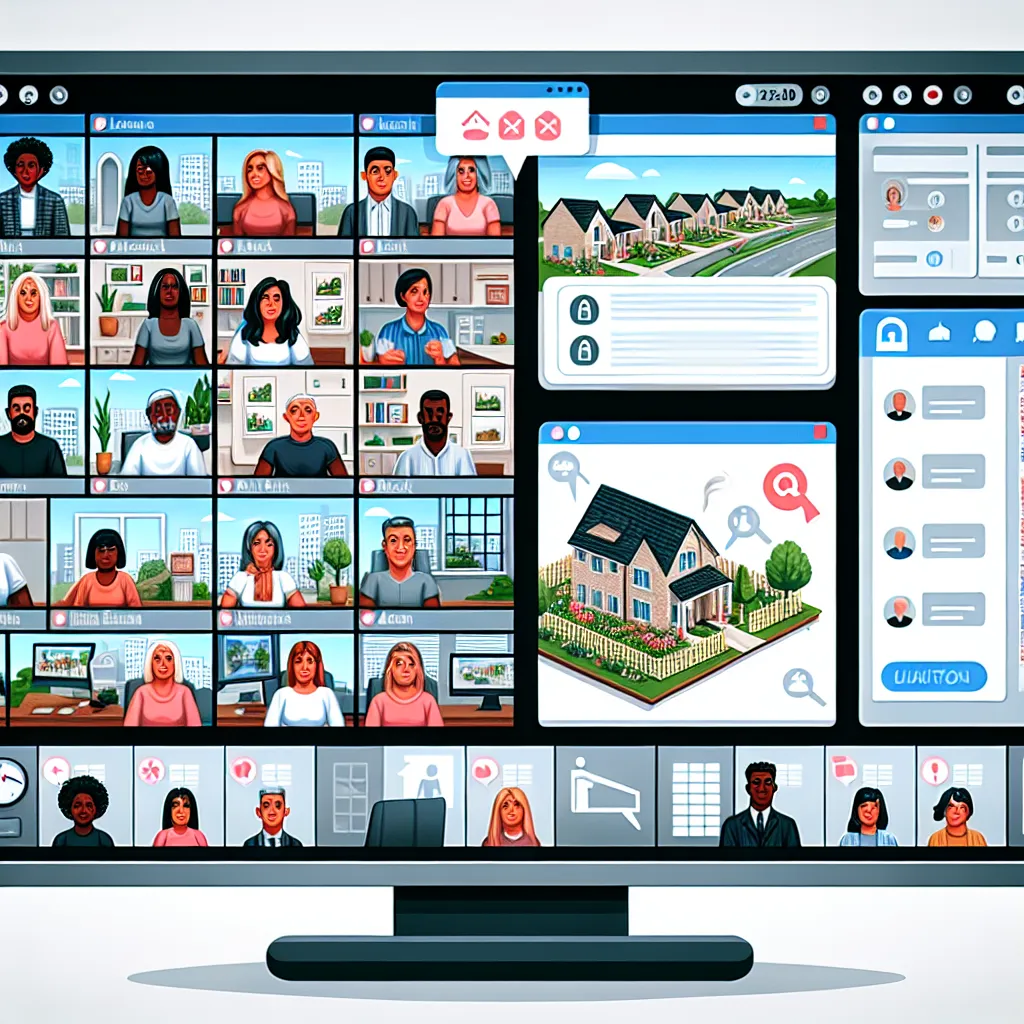The IELTS Speaking test often includes questions about recent developments and innovations. One common topic is describing a recent innovation that has impressed you. This article will guide you through answering such a question effectively, providing sample responses and tips to help you achieve a high band score.
Nội dung bài viết
Part 1: Introduction and Interview
In this section, the examiner may ask general questions about innovations and technology. Here are some possible questions:
- Do you think technology is important in everyday life?
- How has technology changed the way people work in your country?
- What’s your opinion on the rapid pace of technological change?
Let’s look at a sample answer for the first question:
Sample Answer (Band 7-8):
“Absolutely, technology plays a crucial role in our daily lives. From smartphones that keep us connected to smart home devices that make our lives more convenient, it’s hard to imagine a day without using some form of technology. I believe it has revolutionized the way we communicate, work, and even entertain ourselves. However, it’s important to strike a balance and not become overly dependent on it.”
Part 2: Long Turn (Cue Card)
Here’s a sample cue card related to describing a recent innovation:
Describe a recent innovation in your industry that impressed you
You should say:
- What the innovation is
- How you learned about it
- Why it impressed you
And explain how you think it will impact your industry in the future
 Recent innovation in industry
Recent innovation in industry
Sample Answer (Band 7-8):
“I’d like to talk about a recent innovation in the healthcare industry that truly impressed me – artificial intelligence-powered diagnostic tools. I first learned about this technology through a medical journal I regularly read, and it immediately caught my attention.
This innovation involves using advanced machine learning algorithms to analyze medical images such as X-rays, MRIs, and CT scans. What impressed me most is its ability to detect abnormalities and potential diseases with remarkable accuracy, often surpassing human capabilities in terms of speed and precision.
The reason this innovation struck me as particularly impressive is its potential to revolutionize early disease detection and diagnosis. By assisting medical professionals in identifying issues more quickly and accurately, it could lead to earlier interventions and potentially save countless lives.
Looking to the future, I believe this technology will have a profound impact on the healthcare industry. It’s likely to enhance the efficiency of medical diagnoses, reduce human error, and allow doctors to focus more on patient care rather than spending hours analyzing images. However, it’s important to note that while AI will be a powerful tool, it won’t replace human doctors but rather augment their capabilities.
Moreover, this innovation could potentially make quality healthcare more accessible in regions with limited access to specialist doctors. By providing accurate initial assessments, it could help prioritize cases and ensure that those needing urgent care receive it promptly.
In conclusion, AI-powered diagnostic tools represent a significant leap forward in medical technology, and I’m excited to see how they will continue to evolve and improve patient outcomes in the coming years.”
Examiner’s Follow-up Questions:
- Do you think there are any potential drawbacks to this innovation?
- How might this technology affect the job market for radiologists and other medical imaging specialists?
Sample Answer (Band 8-9):
“While the benefits of AI-powered diagnostic tools are significant, it’s crucial to consider potential drawbacks. One major concern is the issue of data privacy and security. As these systems rely on vast amounts of medical data, ensuring patient confidentiality and protecting this sensitive information from cyber threats is paramount.
Another potential drawback is the risk of over-reliance on technology. While AI can be incredibly accurate, it’s not infallible, and there’s a danger that medical professionals might become too dependent on these tools, potentially overlooking subtle signs that only human intuition and experience can detect.
Regarding the job market for radiologists and medical imaging specialists, I believe the impact will be transformative rather than replacive. Instead of making these roles obsolete, AI is likely to redefine them. Radiologists may shift from spending most of their time on image interpretation to focusing more on complex cases, integrating AI findings with clinical data, and making nuanced decisions that require human judgment.
Furthermore, this technology could create new job opportunities in areas such as AI system management, algorithm development, and data analysis specific to medical imaging. It may also allow radiologists to take on more patient-facing roles, improving the overall quality of care.
In essence, while there may be some initial disruption, I believe the long-term effect will be to enhance the capabilities of medical professionals rather than replace them, ultimately leading to better patient outcomes and more efficient healthcare systems.”
Part 3: Two-way Discussion
In this section, the examiner will ask more abstract questions related to the topic. Here are some potential questions and sample answers:
Examiner: How do you think innovations in technology are changing the way we live and work?
Sample Answer (Band 7-8):
“Technological innovations are dramatically reshaping our daily lives and work environments. In terms of lifestyle, we’re seeing a shift towards greater connectivity and convenience. Smart home devices, for instance, allow us to control various aspects of our living spaces remotely, enhancing comfort and energy efficiency.
In the workplace, technology is enabling more flexible work arrangements, with remote work becoming increasingly common. This shift has been accelerated by recent global events, leading to a reevaluation of traditional office-based work models.
Moreover, automation and AI are streamlining many processes, freeing up time for more creative and strategic tasks. However, this also means that people need to continuously upskill and adapt to remain relevant in a rapidly evolving job market.
While these changes bring numerous benefits, they also present challenges such as digital fatigue and the need for stronger cybersecurity measures. Balancing the advantages of technology with potential drawbacks will be crucial as we move forward.”
Examiner: Do you believe that all technological innovations are beneficial to society?
Sample Answer (Band 8-9):
“While technological innovations have undoubtedly brought numerous benefits to society, I believe it would be overly simplistic to claim that all innovations are inherently beneficial. The impact of any technology largely depends on how it’s developed, implemented, and regulated.
Many innovations have transformative positive effects. For example, advancements in renewable energy technologies are helping combat climate change, while medical innovations are improving health outcomes and quality of life for millions.
However, some technologies can have unintended negative consequences. Social media, for instance, has revolutionized communication but has also been linked to issues like addiction, privacy concerns, and the spread of misinformation. Similarly, while AI and automation boost efficiency, they also raise concerns about job displacement and economic inequality.
Moreover, the benefits of innovations are not always equitably distributed across society. There’s often a ‘digital divide’ where certain groups, particularly in developing regions or lower-income communities, may not have access to the latest technologies, potentially exacerbating existing inequalities.
Therefore, I believe it’s crucial to approach technological innovation with a balanced and critical perspective. We need to carefully consider the ethical implications and potential societal impacts of new technologies. This involves not just developing innovations, but also creating robust regulatory frameworks and ensuring equitable access.
In conclusion, while technological innovations have immense potential to benefit society, realizing these benefits fully requires thoughtful implementation, careful regulation, and a commitment to addressing any negative consequences that may arise.”
Key Vocabulary and Phrases for High Scores
-
Revolutionize /ˌrevəˈluːʃənaɪz/ (verb): To change something completely and fundamentally
Example: “The internet has revolutionized the way we access information.” -
Augment /ɔːɡˈment/ (verb): To make something greater by adding to it
Example: “AI tools are designed to augment human capabilities, not replace them.” -
Paradigm shift /ˈpærədaɪm ʃɪft/ (noun): A fundamental change in approach or underlying assumptions
Example: “The move towards renewable energy represents a paradigm shift in how we think about power generation.” -
Unprecedented /ʌnˈpresɪdentɪd/ (adjective): Never done or known before
Example: “The speed of technological advancement in the 21st century is unprecedented.” -
Disruptive /dɪsˈrʌptɪv/ (adjective): Causing or tending to cause disruption
Example: “Blockchain is often described as a disruptive technology in the finance sector.” -
Transformative /trænsˈfɔːmətɪv/ (adjective): Causing a marked change in someone or something
Example: “The invention of the smartphone has had a transformative effect on how we communicate.”
Examiner’s Advice
To achieve a high score in the IELTS Speaking test when discussing innovations:
-
Use specific examples: Don’t just speak in generalities. Provide concrete examples of innovations and their impacts.
-
Demonstrate critical thinking: Show that you can analyze both the positive and negative aspects of technological advancements.
-
Use a range of vocabulary: Incorporate topic-specific vocabulary and more advanced synonyms to showcase your language proficiency.
-
Maintain fluency: Practice speaking on this topic to ensure you can discuss it smoothly and confidently.
-
Develop your ideas: Don’t just state your opinions; explain your reasoning and provide supporting details.
-
Stay relevant: Make sure your answers directly address the question asked.
By following these tips and practicing regularly, you’ll be well-prepared to discuss innovations and technology in your IELTS Speaking test, helping you achieve a higher band score.


